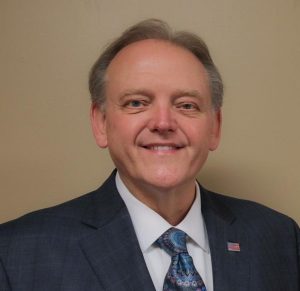By Norman Paslay II
My earliest memory of money is rooted in the Sunday ritual that began when I was about five. There was a candy store about fifty feet from our church. Dad would give me a dime with clear instructions to only spend nine cents. One penny belonged to God; thus the concept of tithing was positively ntroduced into my world. The idea that a tenth belongs to God was forever etched into my mind. My father was a voracious tither. He looked for ways to fulfill the directive to honor God with the first of his increase. He tithed on every gift and resource he gained, not just on his compensation.
I watched him try to discover how much gifts cost that he had received. If he could not find a price tag, he would guesstimate the cost. He would then give a tithe of the price paid or of the value he ascribed to all blessings in his life. It was impacting to watch him live out the idea that one should look for opportunities to give, not seek for ways to exempt oneself from giving.
On the offering front he was more aggressive. Offerings have no set percentage. He felt it was God’s open invitation to invest in the Kingdom. This became the goal of his portfolio as he prepared for retirement. Indeed, N. R. Paslay Sr. was unique on many levels. However, it is incumbent upon those who receive their compensation from the church to be examples of consistent obedience to the Kingdom principle of giving tithes and offerings.
Over the years I have witnessed ministers be creative in inventing ways to interpret the mandate of giving. However, there is no practice that is acceptable before God that does not include the full tithe and consistent offerings. I recognize the unique challenge of this discipline on a local level for a minister. Compliance with the district and national policies is fundamental and should be without debate. Whether it is a percentage or a set amount, our obedience begins here. So, too, does our sowing from which we will reap. If I am not a submitted giver, I release a spirit of insubordination among those I lead. If I cheat in my tithe and offerings, this is what I will lead.
We are undershepherds, but we are also sheep. We must adhere and be an example in this area without
exception or exemption. How can I admonish and direct people to sacrifice and trust God and not be at the forefront of that practice in my personal life? If I am creative and find ways to divide my “increase” between what is to be tithed and what is not-i.e., allowances, benefits, etc.-I should expect those I serve to embrace the same spirit and agenda. If I am not compliant in my giving, those I lead will be equally creative in finding ways to give less than their full tithe.
It is a challenge in practical terms. I cannot put my tithes into the fund from which I am compensated; this would be putting money into my own pocket. There are two schools of thought on ministerial tithes paid at the local level. (1) Put it into a designated ministry or department. This is a conflict for some who point out that you cannot designate tithes. (2) Put my tithes into the general account for overall operational expenses. Sorting this out is vital. I find it compelling to acknowledge that my tithes should not be used as my designated offerings to support departments. But amid the challenging dynamics and varied opinions, the fundamental truth is clear and certain: if I am depending on the giving of people for my livelihood, it is essential that I be an example that does not introduce a spirit of confusion and noncompliance into the process. I will reap or fail to reap as I sow or do not sow. The promises and power of God we preach and teach to others are a promises to us also. It is a matter of trust for the pulpit and the pew.
Norman Paslay II has been a vital part of The Calvary Church for over fifty years. He and his wife, Jeannine, served as youth pastor at The Calvary Church until 1992, when he joined his father as
co-pastor. In 1997, he became senior pastor of The Calvary Church.



